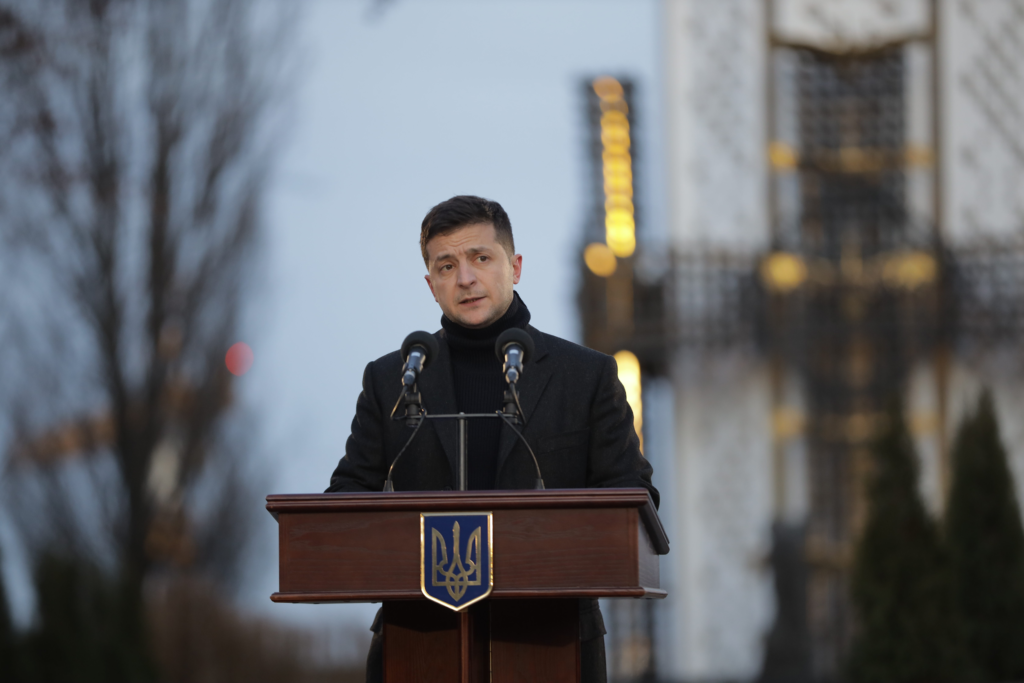Original article (in Montenegrin) was published on 14/01/2022
While the whole world is waiting for the tensions between Russia and Ukraine to calm down, but also between Russia and the USA, the worst-case scenario is heating up on some websites. Such news is usually accompanied by a sensationalist headline, which may lead you to think that conflicts have escalated.
On January 13, on its Facebook, the website Nacionalist, whose texts we often expose in our analyses, published news from September last year, equipped with the following headline:
Zelensky threatens Russia with war! He sent a message to Moscow – that will be your biggest mistake!
This comes just a day after the NATO-Russia Council was held, a diplomatic format that has not been met for two years. The announcement claims that the President of Ukraine, Volodymyr Zelensky said the aforementioned at “YES brainstorming” forum, held in Kiev in September 2021, and added that this would be Moscow’s biggest mistake.
Searching through the websites that followed the forum, we came across a statement by the President of Ukraine. On that occasion, Zelensky said that he did not rule out the possibility of a war with Russia.
“It is the worst thing that can happen, but unfortunately, there is that possibility”, Zelensky said.
He said this in response to a question from BBC journalist and moderator Stephen Sakura, which is available on YouTube, starting at 24:50. He added that if it happens, there would never be a neighborhood between Ukraine, Belarus and Russia, and that is why he wants to have a meeting with the president of that country, Vladimir Putin.
“It seems to me that today they do not see the point in resolving these issues. Ending the war and resolving the conflict quickly – they don’t want that”.
The disagreement between these countries began a long time ago when their linguistic, political and historical paths moved in different directions. According to Al Jazeera’s text, present-day Ukraine, Russia and neighboring Belarus originated on the banks of the Dnieper River, almost 1,200 years ago in Kievan Rus, a medieval superpower that included much of Eastern Europe.
The problem is that Putin claims that Russians and Ukrainians are “one people”, part of a “Russian civilization” that includes neighboring Belarus, which Ukrainians reject and seek access to NATO and the EU. Thus, after the Ukrainian Revolution of Dignity in 2014, Russia managed to annex Crimea and support the separatists in Donetsk and Luhansk, resulting in more than 14,000 dead and one million displaced.
That is why everyone is now afraid of possible conflicts. Russia has repeatedly amassed an army on the border with Ukraine and asked the Alliance to stop enlargement. NATO did not give the green light. The conversations were held, but without a consensus.
To summarize, it is clear that there is a danger of a conflict between the two countries. However, it is not true that Ukrainian President Volodymyr Zelensky threatened with war to his Russian counterpart, Vladimir Putin. Zelensky is actually calling for a conversation to resolve things peacefully.
Because of all this, we rate this post as “biased reporting” and “clickbait”.
“Biased reporting” rating is given to a media report that favors facts, attitudes and conclusions that correspond to a particular narrative, often disregarding the rule of contacting the other party when making claims that are detrimental to one’s reputation. One of the forms of biased reporting is the selective presentation of facts, where facts that support a certain thesis are emphasized, while facts that do not confirm it tend to be omitted. Such media reports are mostly accompanied by a very emotional way of writing. They may or may not be inaccurate, but as a rule, they do not show the whole picture, but only represent those facts that correspond to the preferred narrative.
The rating “clickbait” is given to a media report whose title has no basis in the text that follows. Such texts and articles aim to attract consumers’ attention with their sensationalist titles, promising content that does not actually exist and are mostly created out of financial interest, i.e., due to increased readership.

